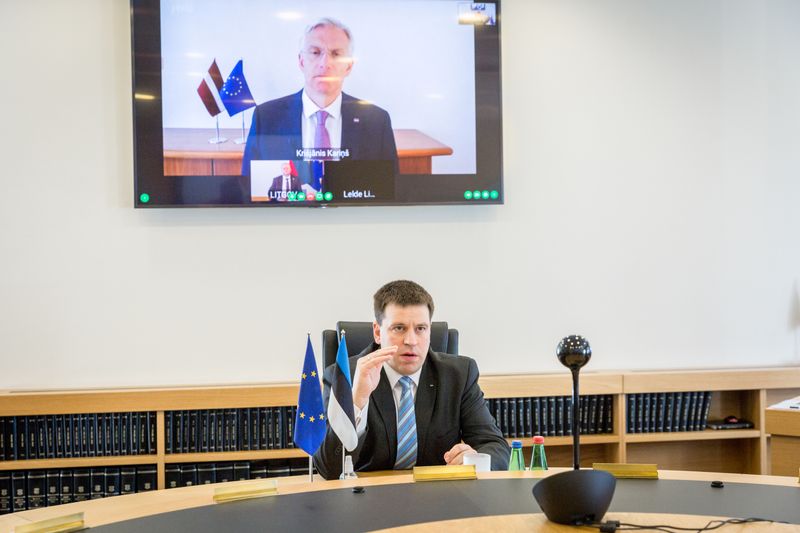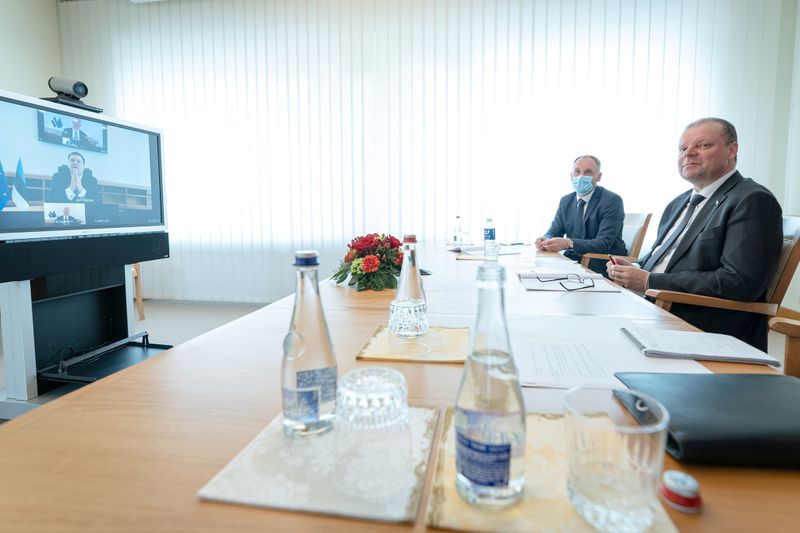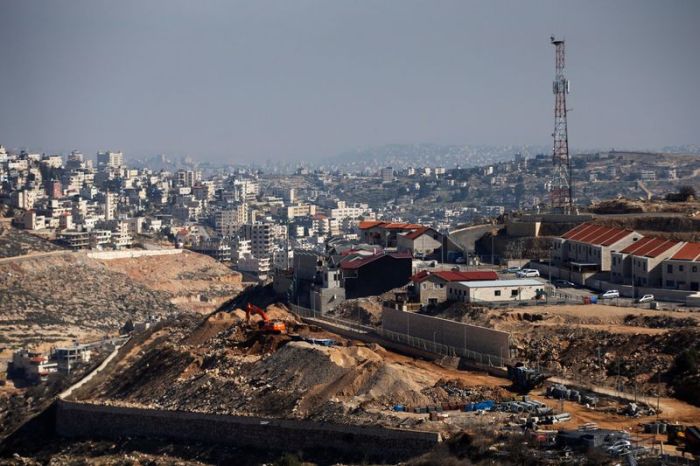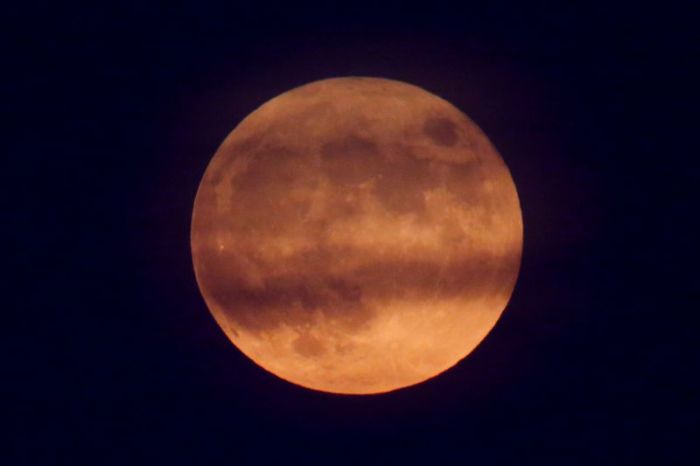VILNIUS (Reuters) – Latvia, Lithuania and Estonia will open their borders to each others’ citizens from May 15, creating a Baltic “travel bubble” within the European Union amid an easing of pandemic restrictions, their prime ministers said on Wednesday.
“It’s a big step towards life as normal”, Estonian Prime Minister Juri Ratas wrote on Twitter.
The Baltic travel area would be first of its kind in the bloc, where most countries restricted entry to non-nationals and imposed quarantine on incoming travellers as the coronavirus spread across the continent.
Citizens of the three countries will be free to travel within the region, but anyone entering from outside will need to self-isolate for 14 days, Lithuanian Prime Minister Saulius Skvernelis said.
“We showed a good example by stating, very clearly, that only countries which successfully dealt with the situation can open themselves up,” he added.
“I think we will keep to this principle when dealing with countries where the situation is very bad, which did not take measures to control the virus spread.”
Poland and Finland could be the next countries to join the free travel bloc, said Skvernelis.
The European Commission has recommended that internal border controls between all member states should be lifted in a coordinated manner, once their virus situation converges sufficiently, the commission’s office in Lithuania said.
Moves to selectively open borders have emerged elsewhere. Australia and New Zealand are working towards resuming travel between the two countries.
Lithuania, Latvia and Estonia, all major trading partners, are also taking cautious steps to re-open their economies.
“This is a very important stimulus for regional tourism businesses. It will not get them back to where they were, but many jobs will be saved,” said Zydre Gaveliene, head of a tourism lobby group in Lithuania.
The region has been part of the European Union since 2004 and the European free-travel Schengen Area since 2007. Estonia and Lithuania closed their borders to non-citizens during the outbreak and all three nations imposed mandatory quarantines on anyone entering for non-work-related reasons.
New infections have slowed to a trickle with none of the countries reporting more than five new cases on Tuesday. In total, Estonia has recorded 55 deaths, Lithuania 48 and Latvia 17.
“For me personally, this means that, after the month-long stagnation, there is light at the end of the tunnel,” Vilnius resident Gabija Narusyte, 47, told Reuters.
(Reporting By Andrius Sytas in Vilnius, Gederts Gelzis in Riga, Tarmo Virki in Tallinn. Writing by Andrius Sytas; editing by Niklas Pollard and Nick Macfie)


























